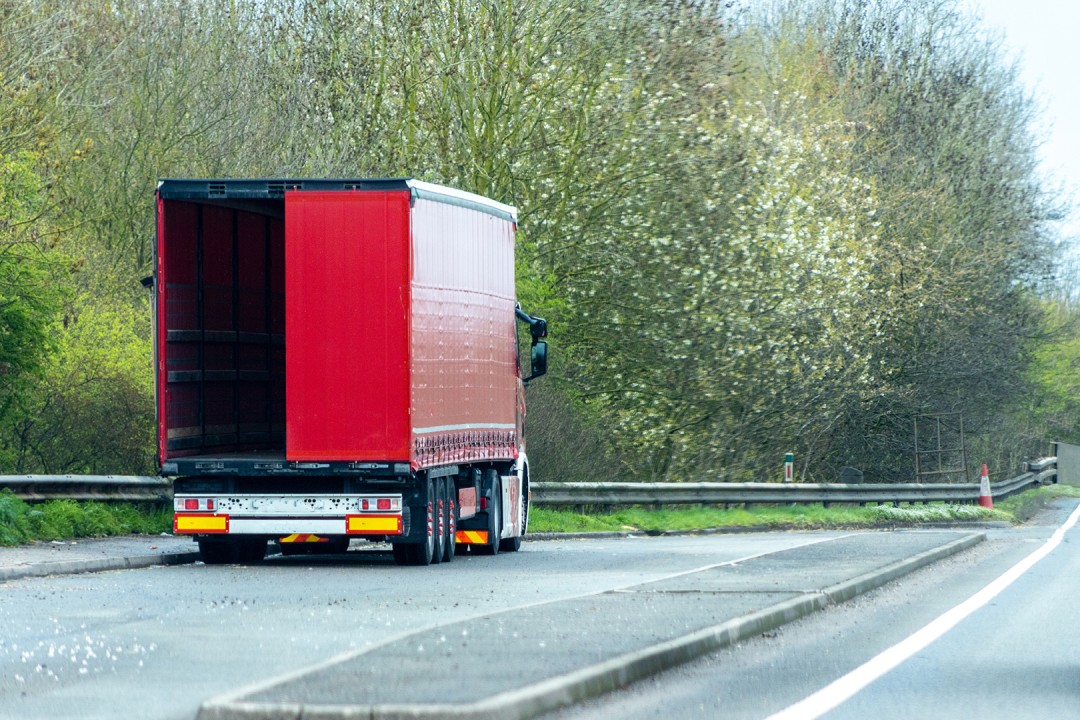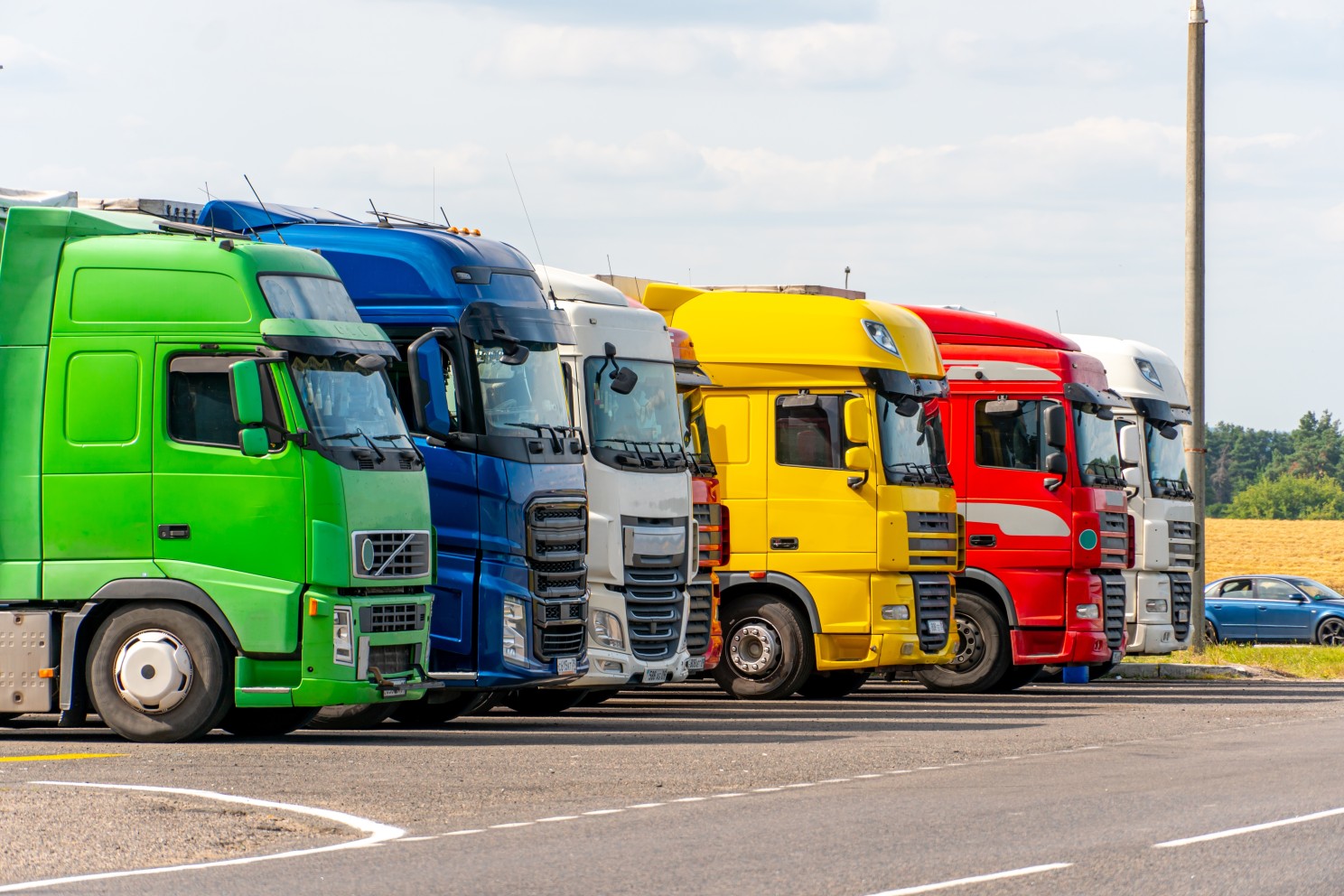
Susie Jones
Șoferii aleg benzinăriile în locul benzinăriilor
Creat: 19.08.2024
•
Actualizat: 19.08.2024
În 2022, în Regatul Unit au fost raportate peste 5 000 de infracțiuni legate de transportul de marfă, ceea ce a însemnat o pierdere de aproximativ 66 de milioane de lire sterline. Creșterea infracționalității în domeniul transportului de marfă reprezintă o amenințare critică la adresa lanțurilor de aprovizionare, a întreprinderilor și a consumatorilor - ceea ce provoacă o îngrijorare semnificativă pentru cei din industria de transport.
Un raport publicat de poliția din Cambridgeshire a arătat că 46% din toate furturile de marfă au loc pe străzi și în parcări, iar 27% au loc în benzinării. În ciuda acestui fapt, ascultarea socială arată că mulți șoferi continuă să parcheze în zonele de așteptare din diverse motive.
Problemele legate de parcarea în zona de așteptare
Pentru șoferi, parcarea peste noapte într-o zonă de așteptare este adesea cea mai simplă și economică opțiune. Cu toate acestea, aceasta prezintă mai multe dezavantaje care pot avea un impact negativ asupra sănătății mintale și siguranței șoferului.
Facilități - Șoferii au nevoie de mai multe facilități, cum ar fi toalete, dușuri și mâncare. Lipsa unor facilități curate poate spori disconfortul și avea un impact negativ asupra somnului, concentrării și sănătății mintale.
Siguranța conducătorilor auto - Parcarea în zona de așteptare prezintă un risc suplimentar pentru siguranța conducătorilor auto. Un studiu realizat de AA a constatat că două treimi din accidentele mortale în care au fost implicate vehicule staționate pe o autostradă cu două benzi de circulație au avut loc în locurile de parcare - peste jumătate din vehiculele lovite erau vehicule grele de marfă.
Furtul de marfă - Industria a înregistrat o creștere de 380% a furtului de marfă în perioada iunie-iulie în 2023, subliniind nevoia de parcări sigure și securizate. În condițiile în care hoții oportuniști vizează locurile de parcare, șoferii riscă să își piardă încărcătura, iar flotele riscă să piardă milioane de lire sterline.
De ce parchează șoferii în locuri neamenajate
În ciuda riscurilor, ascultarea socială realizată prin intermediul Facebook a sugerat că 70% dintre șoferi au fost mai puțin înclinați să aleagă o parcare pentru camioane în locul unei zone de așteptare din mai multe motive:
Securitate
Feedback-ul din social media a sugerat că 43% dintre șoferii de camioane au ales să nu parcheze la o stație de service din cauza lipsei măsurilor de securitate.
"Nu parchez decât în parcări de reședință sau în zone industriale. Când am parcat în service-uri/ stații de camioane, mi s-au tăiat perdelele", afirmă șoferul de camion Luke.
Siguranța și securitatea stațiilor de camioane din Regatul Unit a fost un subiect fierbinte de discuție în cadrul industriei de transport - șoferii solicitând mai mult sprijin din partea guvernului pentru a furniza instalații de securitate suplimentare. Din feedback-ul anterior, șoferii au dorit să vadă [HGV levy] (https://motortransport.co.uk/industry-news/drivers-want-hgv-levy-funds-spent-on-truck-stops/17658.article) investit în parcări mai sigure, sanitare și accesibile.
Pe rețelele de socializare, 59% dintre șoferii de camioane au declarat că Marea Britanie nu are suficiente stații de camioane sigure și securizate în comparație cu Europa. O opinie susținută de feedback-ul de la [SNAP's Truck Park Tour] (https://snapacc.com/truckpark-tour-2023/), unde 31% dintre șoferii europeni au declarat că au beneficiat cel mai mult de accesul la locațiile exclusive și sigure SNAP. Organizația de securitate TAPA este recunoscută pe scară largă în Europa - multe locații dețin certificări de nivel 1, 2 sau 3.
În schimb, în Regatul Unit există doar două locații care dețin o certificare TAPA - acestea fiind acreditate de auditori autorizați SNAP PSR de nivel 3. Formula Services și The Red Lion dețin ambele o certificare de nivel 3 - cu o infracțiune raportată la The Red Lion și niciuna la Formula Services, în ciuda amplasării sale într-o zonă cu un nivel ridicat de criminalitate.
Markus Prinz, Senior Manager of Standards, Training and Certification la TAPA, explică: "Susținem pe deplin toate activitățile de asigurare a unei infrastructuri de parcare eficiente și sigure pentru camioane și de îmbunătățire a siguranței pentru șoferii de camioane, vehicule și încărcătură. Prin furnizarea unui ecosistem deschis pentru optimizarea tehnică și economică a parcării sigure a camioanelor, credem că tranziția către parcarea sigură a camioanelor poate fi stimulată."
Reticența companiei
30% dintre șoferi au declarat că firmele din flota lor nu sunt dispuse să plătească pentru stațiile de camioane sau benzinării. Un șofer a explicat:
"Din păcate, din ce în ce mai puține companii plătesc pentru parcarea de noapte, facilitățile rămân deschise la limită, reduc personalul pentru a face față facturilor, iar numărul de locuri de parcare este mai mic."
Stații de camioane la capacitate maximă
"Vă puteți da seama care sunt stațiile cu pază, deoarece sunt pline până la ora 18.00."
70% dintre șoferi și-au exprimat frustrarea cu privire la faptul că stațiile de camioane sigure sunt la capacitate maximă, neavând de ales decât să parcheze într-o zonă de așteptare. Feedback-ul de la Truck Park Tour a furnizat un sentiment similar - mulți și-au exprimat îngrijorarea cu privire la locațiile din Regatul Unit care erau pline înainte de sosire.
Datele din studiul [TfL] (https://assets.publishing.service.gov.uk/media/6454ab292f62220013a6a572/national-survey-of-lorry-parking-2022-part-one.pdf) privind parcarea camioanelor în 2022 arată că, în ciuda unei creșteri de 12 % a capacității la fața locului în perioada 2017-2022, aceasta nu este suficientă pentru a susține creșterea de 21 % a numărului de vehicule în aceeași perioadă.

Reducerea parcării pe timp de noapte în locurile de parcare
Finanțare guvernamentală
18% dintre șoferi au dorit să vadă mai multe fonduri din partea guvernului pentru a sprijini instalațiile de securitate. În septembrie 2023, Ministerul Transporturilor a acordat [8 milioane de lire sterline pentru 39 de instalații rutiere] (https://www.gov.uk/government/news/better-facilities-for-lorry-drivers-as-winners-of-8-million-funding-revealed) din întreaga Anglie pentru a îmbunătăți instalațiile și securitatea. Echipa de acces și securitate a SNAP începe să sprijine companiile care au obținut finanțare prin punerea în aplicare a îmbunătățirilor acestora. O finanțare suplimentară de până la 100 de milioane de lire sterline este disponibilă până în 2025 în cadrul schemei de finanțare echivalentă a guvernului.
Instalații de securitate
Pentru a oferi o zonă sigură șoferilor de camioane, stațiile de camioane pot investi în instalații de securitate robuste - produse precum CCTV, ANPR, interfon, bariere și chioșcuri consolidează siguranța locului și descurajează activitatea infracțională. SNAP Access & Security combină produse de securitate personalizate și expertiză de piață pentru a proteja persoanele, vehiculele și conținutul stațiilor de camioane.
Pot șoferii de camioane să doarmă pe marginea drumului în Regatul Unit?
Începând cu 1 noiembrie 2017, DVSA a implementat noi reguli și reglementări privind odihna șoferilor în locuri precum zonele rezidențiale și locurile de așteptare. Șoferii pot fi amendați cu până la 300 de lire sterline dacă își petrec pauza într-o zonă de așteptare sau pe marginea drumului.
Cum reușesc șoferii de camion să rămână treji în timp ce conduc?
Șoferii de camioane trebuie să respecte regulile de pauză [tahograf] (https://snapacc.com/newsroom/tachograph-rules-made-easy/) pentru siguranța lor și a celorlalți participanți la trafic. Scopul tahografului este de a preveni oboseala șoferilor și de a se asigura că șoferii și angajatorii respectă regulile.
În ciuda acestui fapt, prevenirea plictiselii și a oboselii pe drum reprezintă o provocare pentru mulți șoferi și le poate afecta bunăstarea. Majoritatea șoferilor preferă să asculte muzică și podcast-uri în timpul călătoriei și se bucură de interacțiunea socială cu alți șoferi în stațiile de camioane și benzinării.
Șoferii de camioane au voie să aibă pasageri în Regatul Unit?
În medie, șoferul de camion petrece aproximativ 12 ore pe zi la volan. Pentru a combate singurătatea și plictiseala, șoferii pot transporta pasageri dacă respectă reglementările specifice prezentate de FMSCA. Șoferii trebuie să obțină o autorizație scrisă de la compania lor prin depunerea unei cereri pentru pasageri - această cerere trebuie să precizeze durata călătoriei și datele.
Cerințele comune sunt următoarele: - Pasagerii nu trebuie să fie însărcinați
Nu trebuie să sufere de afecțiuni grave sau cronice
Trebuie să aibă zece ani sau mai mult
Asigurarea de sănătate este obligatorie.


